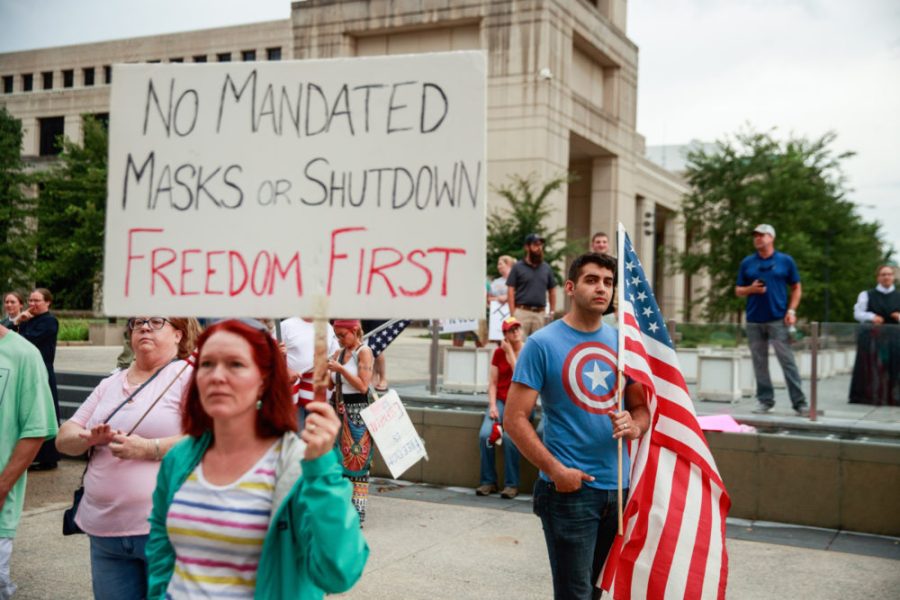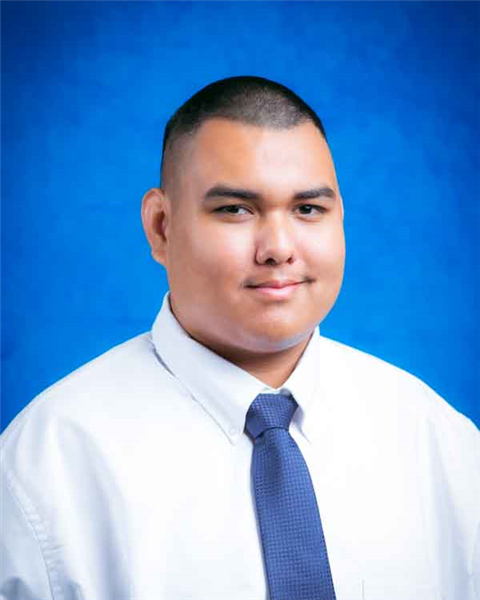Cons of wearing a mask
SOPA Images/LightRocket via Gett
INDIANAPOLIS, INDIANA, UNITED STATES – 2020/07/19: A protester holds a placard saying No Mandated Masks or Shutdown Freedom First during the We Will Not Comply anti mask rally. People protest against both the Indianapolis mayor Joe Hogsetts mask order and Indiana governor Eric Holcomb’s extension of the state shutdown. The U.S. Department of Health recorded a total of 3,898,550 infections, 143,289 death and 1,802,338 recovered since the beginning of the Coronavirus (Covid-19) outbreak. (Photo by Jeremy Hogan/SOPA Images/LightRocket via Getty Images)
October 13, 2021
I don’t like to wear masks. Here are some cons of wearing a mask. For example, it is harder to breathe, to hear the person you are talking to, and your glasses get fogged up. During physical education students have trouble breathing with the mask on. A recent German study from NBC news article found masks to have a “Negative impact on cardiopulmonary capacity and quality of life, and recommended these effects be balanced against potential reductions in viral transmission.” Students are forced to navigate through this new environment with no other choice than to wear a mask. The transition is inevitable and can often be traumatic.
The student feels like they must wear the mask to protect themselves from everyone at school, especially the counselors and teachers alike. By hiding behind this mask however they lose their confidence, and become afraid to show emotion. Wearing a face mask possibly creates a false sense of security, leading to a decline in other measures. Face masks could be a risk for the people with underlying medical conditions, older people, outdoor exercise, acute and chronic respiratory disorders, and feeble innate immune systems. In addition, it is a hassle when a mask rips apart and you have to get a new mask. Freshman David Shen stated “I don’t like masks because I can’t see my friends faces.”
In an article by NCBI news, Manfred Spitzer stated that “It is a medical truism that everything that has effects also has side effects. The physical side effects of face masks have been mostly reported by medical professionals working in surgery and related surgical environments, and science professionals working in labs. In a study of 158 health care workers during the Covid-19 pandemic, the most common side effect of prolonged face mask use was bilateral headache, reported by about 80% of the participants [58]. Headaches occurred one to four times during a 30-day period of mask use and were rated as mild by the majority (72%) of respondents. Within 30 min after removal of the face mask, the pain resolved spontaneously. Pain medication such as non-steroidal analgesics was used in only a few cases.” Also wearing a face mask possibly creates a false sense of security leading to a decline in other measures.
From an article by Dyer County high school a Journalist student by the name of Grace Vaughn stated in the article that, “Breathing through the same mask can dampen it, causing excessive moisture, resulting in it becoming airtight. When a mask becomes airtight, the wearer’s air that he or she inhales and exhales becomes unfiltered and dirty around the edges, endangering themselves and others. Additionally, when masks aren’t washed or changed accordingly, pathogens can proliferate in the mask, increasing the risk of spreading pathogens.” I do agree with Grace Vaughn about mask being damp and airtight. These were some of the cons of wearing a mask.


